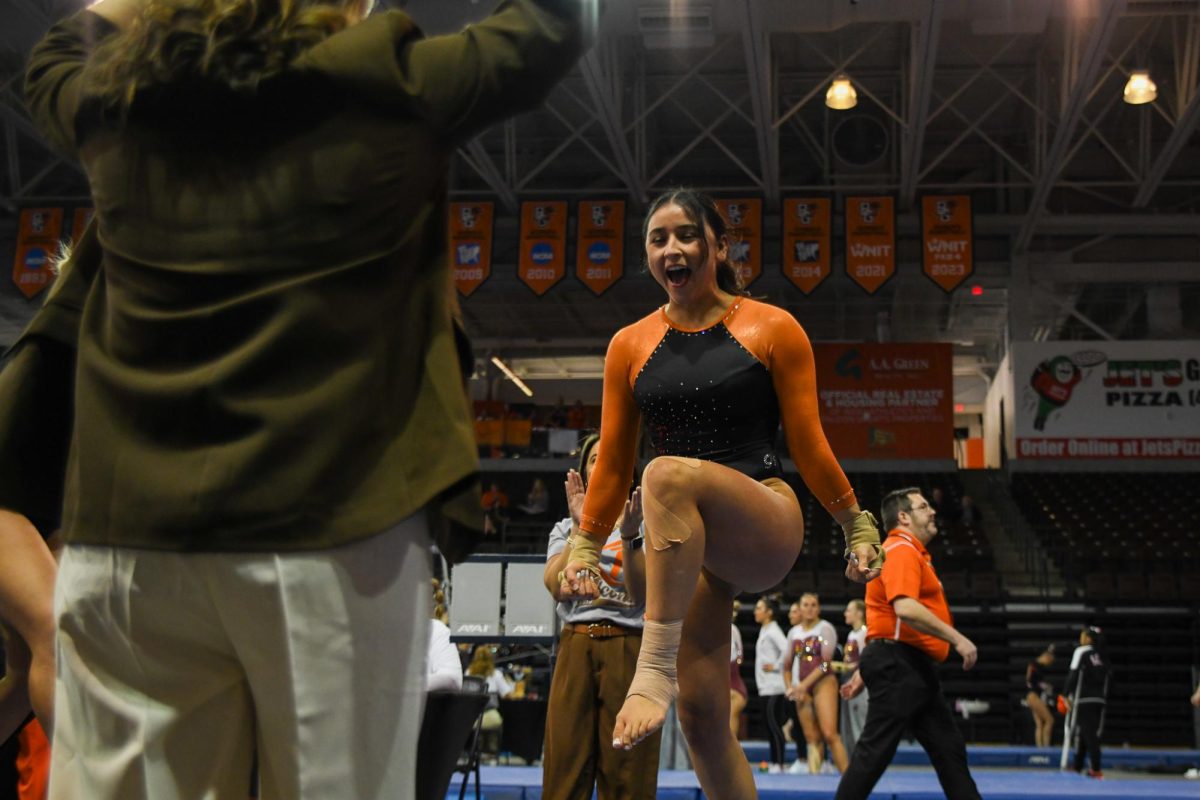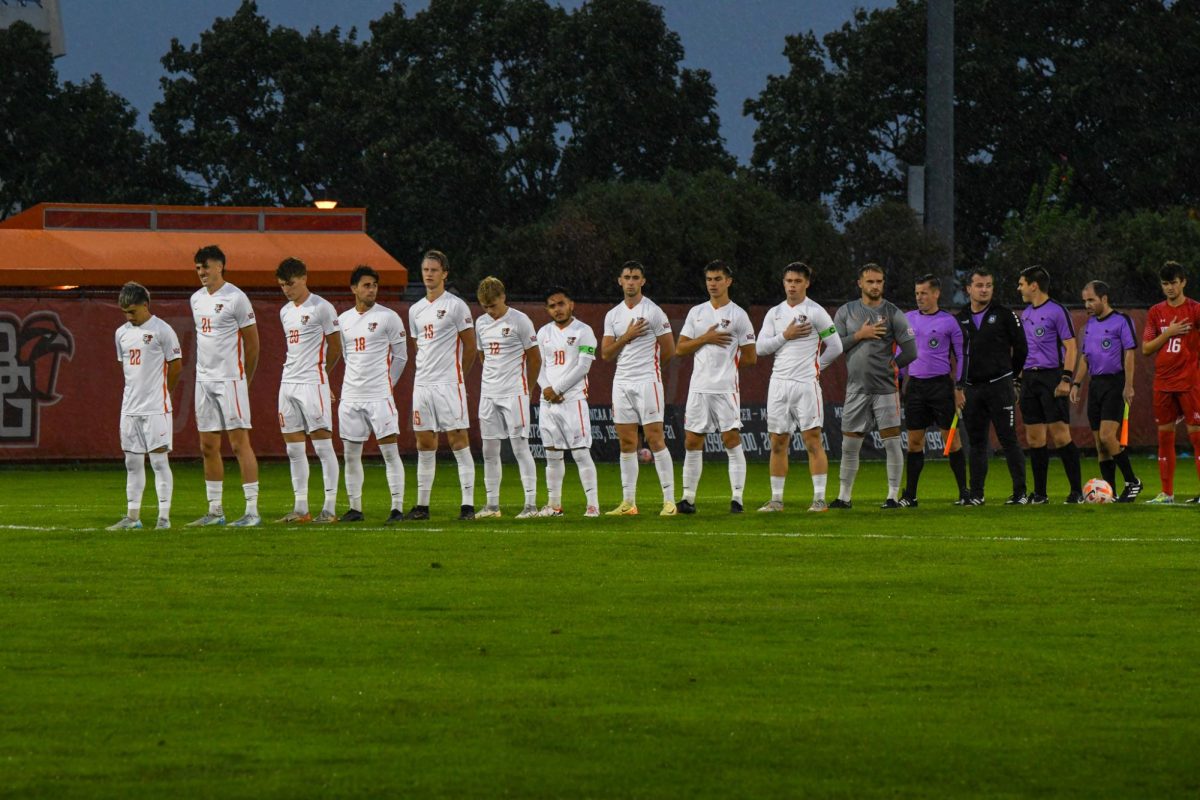I’ve tried my best to avoid the topic of domestic violence. However, sitting in women’s study class with tears about to fall from my eyes after watching a documentary on battered women, I decided that this subject is not only crucial, but one that people need to be better educated on as well.
For example, the Ray Rice controversy.
On numerous occasions, I have had in-depth discussions with individuals in which they excused his behavior. They claimed that the media exploited the incident and that the now-suspended NFL player’s actions need to be overlooked.
One reason, they claimed, was because “she” stayed.
Or this one is even better: “Ray Rice’s wife” stayed.
Her name is Janay.
And anyone I’ve discussed this issue with should be intelligent enough to know she is a victim, not the person to blame.
This column is not about the NFL; it’s not about the Ravens, the decision made or even Rice. This is about Janay. That’s where everyone’s focus should be.
We need to educate ourselves on the possible reasons why a battered woman would stay in an abusive relationship, not shame them.
If it can happen in a public elevator in an Atlantic City casino, imagine what kind of abuse is happening behind closed doors— that thought alone terrifies me.
According to the documentary we watched in class [the one that triggered me emotionally], women who leave abusive relationships increase their chances of being murdered by their abusers by 75 percent.
According to The Washington Post’s website, three women are killed by their partners each day. And four out of every five victims of domestic violence are women.
While many people question Janay’s intentions throughout her marriage, some even criticize her saying the only reason for staying with her husband is for financial security— I believe there are more factors to consider.
A victim of domestic violence could be impacted emotionally as well as mentally.
An abusive relationship doesn’t always involve physically hurting a partner; It’s more than that.
Victims typically feel as if it is their fault and that they have failed their marriages.
Often times, if there is a child involved it gives the victim more of an incentive to stay.
Perhaps they stay in hopes of fixing their relationships. Or maybe to ensure their child’s safety, as children can be used as a weapon against the victim.
Another factor to consider is the cycle of abuse. Honestly, does anyone really believe Janay’s husband always subjects her to violence? Typically, this is not the case.
But that doesn’t mean the one visual act of evidence we have is excused.
There’s what we call ‘the honeymoon phase.’
This happens after any abuse, verbal and physical.
During this ‘phase’ [because it is just a phase] the manipulator makes the victim feel special and loved. He will remind her why she fell in love with him in the first place.
He will promise her all these great things and promise the abuse will never happen again.
As a result, and after all the manipulation, she will be convinced everything is her fault.
Instead of assuming why Janay stayed, let’s give her credit for dealing with such a tough decision.
Let’s not assume she’s staying for financial stability, but maybe because her husband has manipulated her into thinking the abuse is her fault. Maybe she really loves him and believes all of his hopeless promises.
It’s called the cycle of abuse for a reason and we can only hope that one day she realizes her worth, and that when she does, she doesn’t face the emotional trauma he has inflicted on her life thus far.
Hopefully, one day, she can move on and not be a statistic.
Respond to Ashley at













